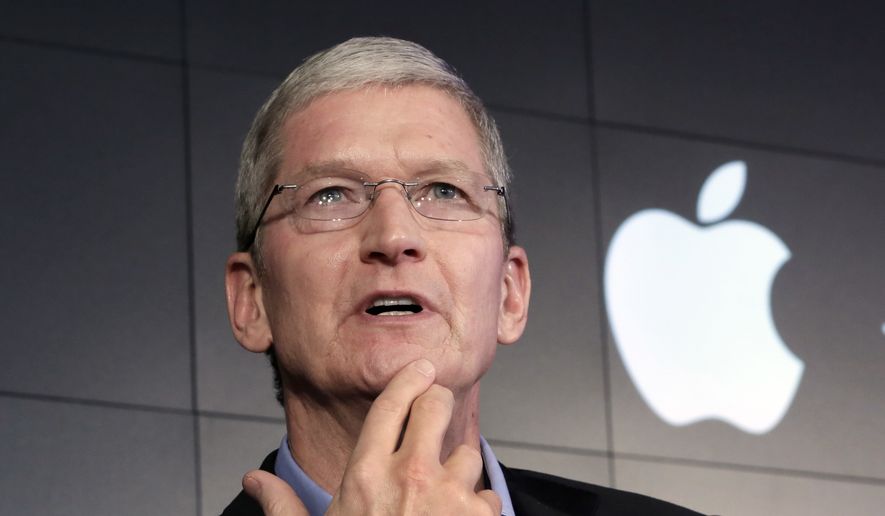The proper response to Donald Trump’s fuming, “Who do they [Apple] think they are [in resisting the FBI]?” thundered forth in 1763 from William Pitt the Elder to the British Parliament and echoed throughout the American colonies as they assailed British Writs of Assistance:
“The poorest man may in his cottage bid defiance to all the forces of the Crown. It may be frail, its roof may shake; the wind may blow through it; the storms may enter, the rain may enter,—but the King of England cannot enter; all his forces dare not cross the threshold of the ruined tenement.”
The Fourth Amendment right to be let alone from government intrusions, Supreme Court Justice Louis D. Brandeis sermonized in Olmstead v. United States (1928) is “the most comprehensive of rights and the right most valued by civilized men.”
In other words, Apple is standing in apostolic succession to the Founding Fathers in balking at the FBI’s demand that it develop software to circumvent a 5c iPhone locked by a password and owned by one of the San Bernardino, California terrorists. The FBI hopes to discover whether others were complicit or otherwise assisted or encouraged the terrorist murders.
But Apple’s assistance is far from indispensable on that score. Among other things, the terrorists’ phone records can be obtained by the FBI from Verizon, their cell carrier. The National Security Agency can identify every phone number called by their cell phone and every phone number calling into them. Informants can be employed to gather counterterrorism intelligence. The idea that the FBI would “go dark” in preventing or punishing terrorism without Apple’s help is thus absurd.
Moreover, the whole purpose of the Fourth Amendment’s prohibition on unreasonable searches and seizures is to protect the right to be let alone knowing that some crime may consequently escape detection—even a terrorist murder. The American Revolution was not about a risk-free existence. It was about liberty as an unalienable right subject to compromise only by the government’s demonstration (not speculation) of an urgent need.
Apple is not suspected of wrongdoing. Apple is not said to possess evidence of crime or intellectual property necessary to solve crime. The FBI is demanding that Apple create software that does not currently exist as a de facto arm of law enforcement. This takes President John F. Kennedy’s, “ask not what your country can do for you — ask what you can do for your country” to a new level.
The shots heard round the world at Lexington and Concord honored a liberty-centered universe in which the highest end of the state is the creation of conditions that enable men and women to develop their faculties and pursue their ambitions. In the United States, citizens are not appendages of law enforcement like Cuba’s Committees for the Defense of the Revolution. Here, the government cannot compel citizens to dwell in glass houses to facilitate the detection of crime.
Apple might be faulted if its resistance to the FBI were obstinacy. Apple’s cooperation is permissible even it may not be constitutionally compelled.
But it is rightly concerned that the precedent would enable China, Russia, or Iran to compel it to write code to assist human rights violations. It worries that the code developed for the FBI might fall into the hands of hackers who could break into Apple’s other devices. Moreover, the government itself sports a worse than suboptimal record of keeping secrets. Finally, the FBI has failed to articulate a limiting principle that would prevent it tomorrow from demanding that Apple write software to decode encrypted data to assist law enforcement.
Justice Brandeis prophetically warned in Olmstead: “Experience should teach us to be most on our guard to protect liberty when the Government’s purposes are beneficent … The greatest dangers to liberty lurk in insidious encroachment by men of zeal, well meaning but without understanding.”
But Donald Trump is no Louis Brandeis!




Please read our comment policy before commenting.